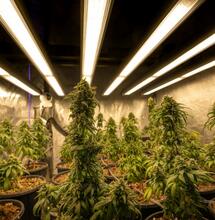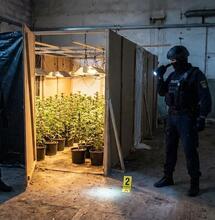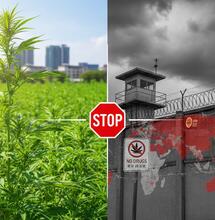Thailand Recriminalization: $1Bn Dollar Industry at Peril

After much threatening and talking what to do with the free use of cannabis, the Thai government is finally putting a nail in the coffin. Over the last three years, cannabis has become exceptionally popular with international tourists traveling to Thailand. But enter domestic politics, it is a much more complex matter, with conservative Thais remaining largely against its use recreationally.
Thailand Free Cannabis Policy Lasted Only Three Years
Thailand became the first Asian country to introduce liberal laws around the use of cannabis. The legislation on free weed was brought three years ago, in June 2022. Attracting foreign investors and reputable brands to come to Thailand, the country quickly built an unmatched budding sector. It made Thailand one of the most desired cannabis tourist destinations, including visitors from countries like Japan, Indonesia and Singapore where cannabis is strictly prohibited; many have been traveling to Thailand just to have a taste of the benefits of the medical herb. But now, it seems, all is nearing to an end.
If you live or stay in Thailand, you will need to find a doctor who will be able to prescribe you cannabis for therapeutic and health reasons. It would be the only way to consume cannabis in a legal fashion in the future. That is the key takeaway from the official order which was given by the Thailand’s Ministry of Health at the end of June, which restricts cannabis to medicinal uses only.
There’s only one step left to complete the current recriminalization plan of Thai authorities. That is, to publish the order in the official Royal Gazette.
Why Is Cannabis Recriminalization Happening in Thailand?
Cannabis is one of the big political questions of the 21st century, definitely. Whether it is being legalized or criminalized, any decision is inevitably in someone’s political interest.
This most recent (and successful) push to restrict cannabis use in Thailand follows after the Bhumjaithai Party (which brought in legalization in the first place) withdrew from the ruling coalition due to an apparent government fumble with a border issue with Cambodia.
The current Thai government believes that the easy access to cannabis has created more problems, especially among young people, but it appears ignorant to other facts. For instance, as the use of cannabis has grown, the sales of alcohol have dramatically gone down, and likely causing concern among alcoholic beverage companies.
While the Thai government says recriminalization will correct social problems, manufacturers and farmers argue that the new rules would not subdue cannabis. They believe it will only push cannabis underground and open up the space for more illicit activities.
Reverse Move Makes It Uncertain What Happens with $1 Billion Weed Industry
“Cannabis will be classified as a narcotic in the future,” Health Minister Somsak Thepsuthin said, according to Reuters.
How they manage to shut down or repurpose the thousands of vendors and shops that have been operating since the start of legalization three years ago, it is a big unknown. Pro-cannabis activists believe that the proposal is “insane” and say that the government cannot undo cannabis business.
Cannabis trade in Thailand has been estimated at reaching $1.2 billion in 2025, according to the Thai Chamber of Commerce. It is a number that does not even prescribe the full potential of the Asian country’s cannabis market. Obscure regulation around cannabis, with rules that have never been crystalized after 2022, has taken their toll and hindered more investments and growth.
Cannabis could have truly transformed Thailand’s agriculture, medicine and tourism sectors, but unpredictability and reversing policies have foiled long-term sustained development. First to feel the new restriction will be tourists and recreational users. Shops, vendors and farmers may also feel the dent in their valets. And so will state coffers.
More on this topic from Soft Secrets:















